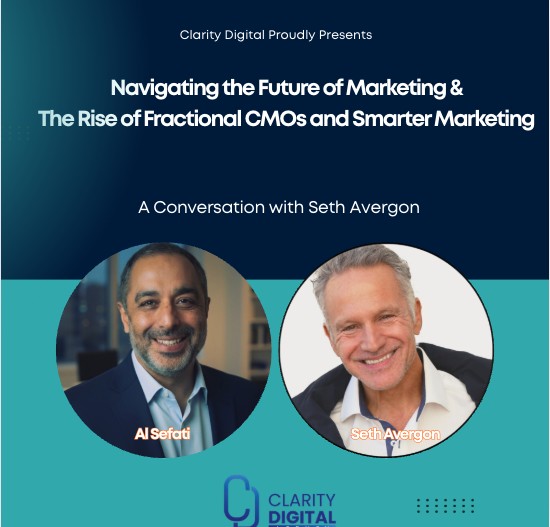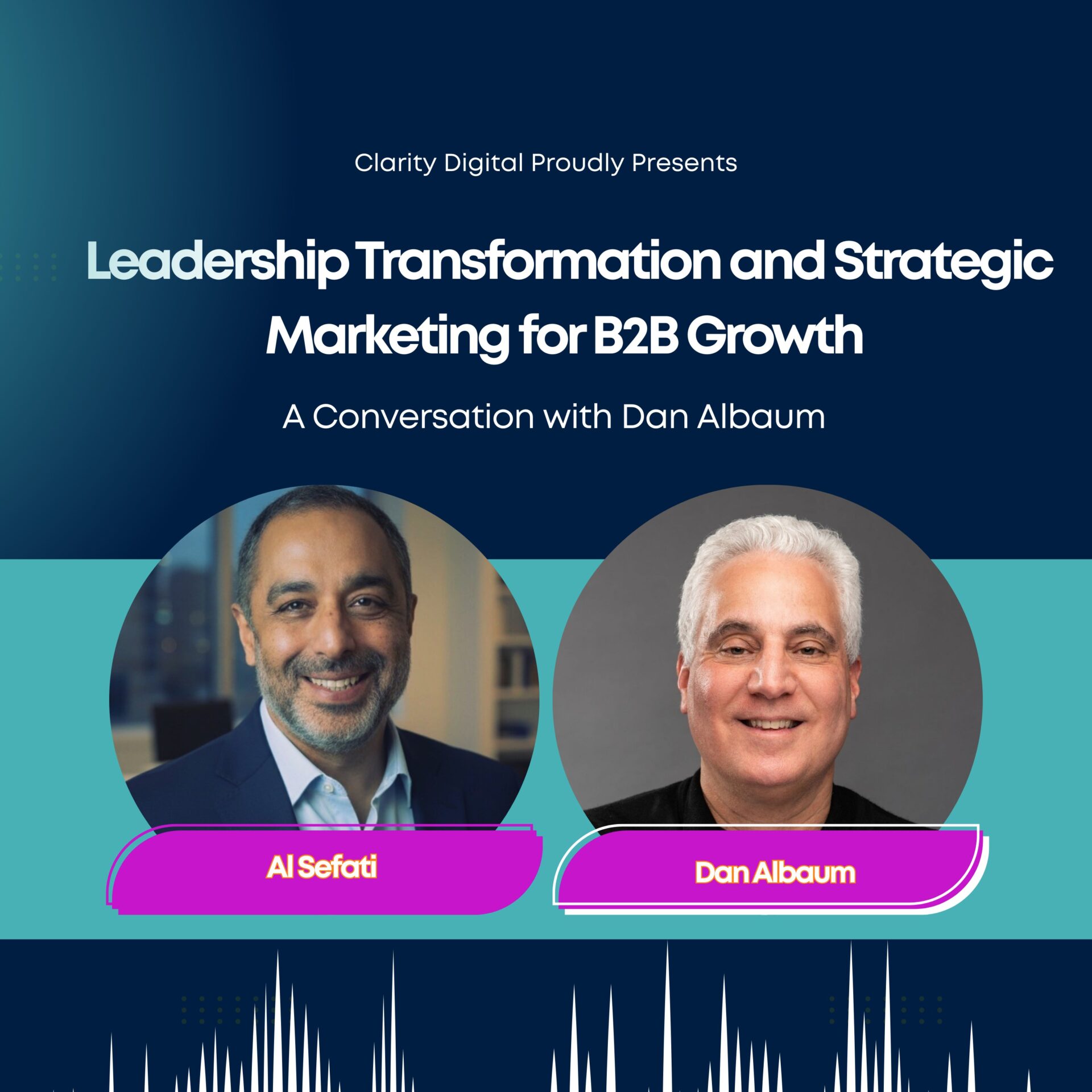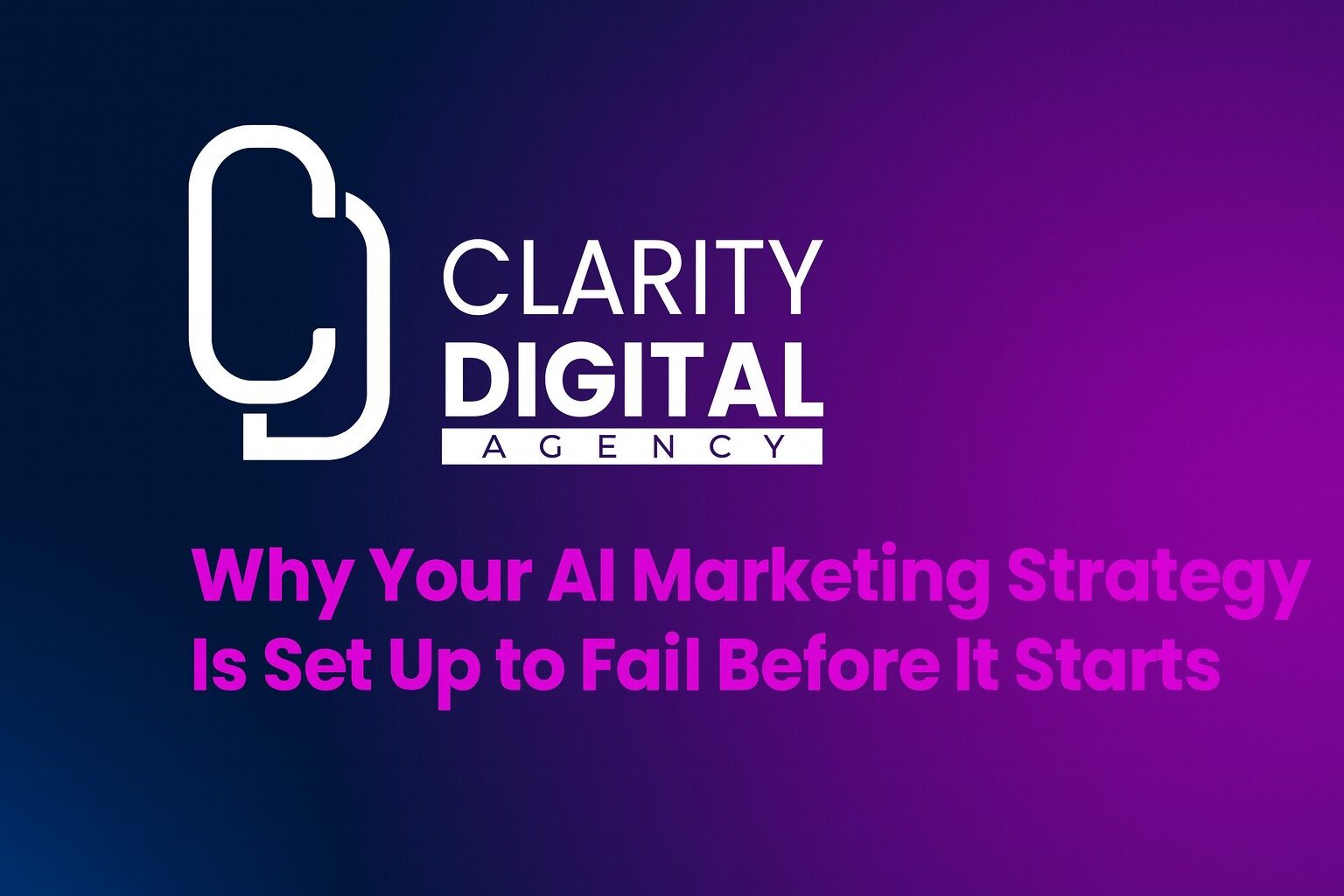The role of chief marketing officer (CMO) has come under scrutiny in recent years. Once the undisputed leader of brand strategy, advertising, and customer engagement, the modern CMO now finds themselves at a crossroads. The traditional role of CMO has been phased out of some organizations, often replaced with roles such as chief growth officer or chief customer officer. This begs the question: Is the CMO role truly dying? Or is it simply undergoing a necessary transformation to keep up with the demands of digital marketing, omnichannel strategies, and the rise of AI and data-driven decision-making?
The short answer is no. The CMO role is still an important role but it is evolving. This post will delve into the evolving CMO role, the growing complexities of the consumer journey, and how CMOs can navigate an increasingly fragmented marketing landscape.
This post will also explore how marketing leaders can embrace cutting-edge tools, better understand consumer behavior, and lead their teams through digital transformation. Ultimately, we’ll show how fractional CMOs — highly experienced marketing leaders working on a part-time or project basis — can offer businesses the expertise they need without the commitment of a full-time CMO.
The Evolution of the CMO Role
Without a doubt, the CMO is evolving. Traditionally, CMOs have been responsible for brand management, advertising, and customer outreach. However, as businesses adapt to the digital era, these responsibilities have grown more complex, requiring CMOs to take on new challenges like data analysis, customer experience management, and the adoption of AI-driven marketing tools.
The Shift from Creative to Data-Driven Leadership
In the past, CMOs were often seen as the creative leaders of a company, responsible for shaping the brand’s voice, image, and campaigns. However, as businesses began to understand the immense value of data, the role started to evolve. Today’s CMOs must balance creativity with analytics, focusing on measurable outcomes that tie marketing efforts directly to revenue growth.
This shift towards data-driven decision-making has created new opportunities and challenges for CMOs. CMOs now have access to a wealth of consumer insights that can guide their strategies. On the other hand, they must constantly evolve to stay ahead of technological advances, such as AI and machine learning, which are rapidly transforming how brands connect with their audiences.
The Rise of Alternative Titles: CGO, CCO, and Beyond
As the marketing function continues to expand, many organizations have started restructuring the CMO role to better reflect their goals. For example, some companies have eliminated the CMO position entirely, replacing it with roles like the chief growth officer or chief customer officer. These new titles reflect a broader set of responsibilities that encompass not just marketing, but also sales, product development, and customer experience.
The chief growth officer role, for example, typically oversees growth initiatives across multiple departments, including marketing, sales, and product. This holistic approach to growth reflects the interconnected nature of modern business, where marketing no longer exists in a silo but works in harmony with other departments to drive overall success.
Meanwhile, the chief customer officer focuses on the entire customer experience, from initial contact to post-purchase engagement. This role reflects the growing importance of customer satisfaction and retention in an increasingly competitive marketplace.
Despite these shifts, many companies still see value in the traditional CMO role — especially those that recognize the importance of strong brand management and marketing leadership. For these organizations, the CMO remains a critical player, albeit with an updated toolkit that includes data analysis, AI, and digital transformation strategies.
Understanding the Complicated Consumer Journey
One of the most significant challenges facing modern CMOs is the increasingly complicated consumer journey. The days of linear customer paths — where a consumer sees an ad, makes a purchase, and becomes a loyal customer — are long gone. Today, consumers interact with brands across multiple touchpoints, often in unpredictable and non-linear ways.
To succeed, CMOs must develop an understanding of this fragmented journey and learn to engage consumers at every stage, whether they’re browsing on social media, researching products on mobile devices, or visiting physical stores.
Multi-Channel Engagement
Consumers now interact with brands across a dizzying array of channels — social media platforms, search engines, email, websites, mobile apps, and even in-store experiences. CMOs must wrestle with creating seamless, consistent brand experience across all these touchpoints.
This approach requires omnichannel marketing strategies, where every interaction with the consumer feels unified and coherent, no matter where it takes place. A customer who now browses a product on Instagram should receive personalized recommendations when they visit the brand’s website or receive targeted ads that align with their interests.
Data-Driven Insights and Personalization
A key component of understanding the consumer journey is leveraging data to gain insights into customer behavior. With the explosion of available data — from browsing histories to social media engagement — CMOs can now map out detailed customer journeys, identify pain points, and predict future behavior.
However, this requires more than just collecting data. CMOs must invest in advanced analytics tools and machine learning algorithms to interpret that data and turn it into actionable insights. By using predictive analytics, for example, CMOs can anticipate customer needs and deliver personalized marketing messages at precisely the right moment in the consumer journey.
Personalization at scale is no longer a luxury — it’s an expectation. Consumers today want tailored experiences that reflect their unique preferences, needs, and behaviors. The CMOs who can master this level of personalization will be better equipped to build lasting relationships with their customers.
Customer Experience (CX) Integration
The modern consumer journey goes beyond marketing — It encompasses the entire customer experience. As a result, the CMO’s role must expand to include oversight of the full customer experience, often in collaboration with other departments such as product development, sales, and customer service.
Customer experience (CX) is becoming a competitive differentiator for businesses. Brands that can deliver seamless, enjoyable experiences across all touchpoints are more likely to earn customer loyalty and advocacy. For CMOs, this means moving beyond traditional marketing tactics and embracing a more holistic approach to customer engagement.
Keeping Up with Marketing Tools and Channels
Another major challenge for today’s CMOs is staying in-the-know with the array of marketing tools and channels. From AI-powered automation platforms to new social media networks, the marketing landscape is constantly shifting. To remain competitive, CMOs must be tech-savvy, agile, and willing to embrace new tools and strategies.
The Explosion of MarTech
Marketing technology (MarTech) has grown exponentially over the past decade, with thousands of tools now available to help marketers automate processes, analyze data, and optimize campaigns. From customer data platforms (CDPs) to content management systems (CMS) and marketing automation platforms, CMOs have an overwhelming number of options at their disposal.
While these tools offer incredible potential for improving efficiency and effectiveness, they also come with their own set of challenges. Leaders must carefully evaluate which technologies align with their goals, integrate these tools into their existing systems, and ensure their teams are trained to use them effectively.
AI and Automation in Marketing
Artificial intelligence (AI) is one of the most transformative technologies shaping the future of marketing. AI-powered tools can analyze vast amounts of data, identify patterns, and deliver insights that would be impossible for humans to process manually. This allows CMOs to make more informed decisions, optimize campaigns in real-time, and deliver personalized experiences at scale.
Automation also streamlines many marketing tasks. From sending personalized emails to optimizing ad campaigns, CMOs now have the ability to automate routine tasks frees up time to focus on higher-level strategic initiatives.However, with the rise of AI and automation comes the need for CMOs to stay informed about these technologies and how they can be integrated into their marketing strategies. Those who fail to keep up with the latest tools risk falling behind their competitors.
Marketing Attribution and Measurement
With so many tools and channels at their disposal, one of the biggest challenges for CMOs is accurately measuring the impact of their efforts. Marketing attribution models — such as multi-touch attribution — allow CMOs to understand which touchpoints in the customer journey are driving conversions. To gain a clearer picture of what’s working and what’s not, CMOs need to invest in marketing analytics platforms that can track consumer interactions across all channels and provide actionable insights. Understanding these attribution models is critical for optimizing campaigns, allocating resources, and proving the value of marketing initiatives to other stakeholders.
Increasing Digital Channels Bringing Complexity
New marketing channels and platforms emerge regularly, making it difficult for CMOs to keep up. Whether it’s a new social media platform or a novel form of content distribution, CMOs must decide which channels are worth investing in and which are not worth the investment. For instance, while TikTok has proven to be an effective platform for certain demographics, it may not be relevant for every brand. CMOs need to stay ahead of the curve, but they must also be selective about where they allocate their budgets and resources.
The Modern CMO: Balancing Strategy, Technology, and Leadership
As we’ve explored, the role of the CMO is not dying — it’s transforming. Modern CMOs must be adaptable, tech-savvy, and capable of leading cross-functional teams. They must balance creative strategy with data-driven insights, oversee the customer experience, and embrace the latest marketing tools and technologies.
To succeed, CMOs must focus on three key areas:
- Continuous Learning and Team Development
Marketing is evolving at a rapid pace, and CMOs must prioritize ongoing education for themselves and their teams. Whether through certifications, conferences, or hands-on experience with new tools, staying up-to-date is essential. CMOs should also foster a culture of learning within their teams, encouraging collaboration and innovation. - Building a Data-First Culture
Data is the foundation of modern marketing. CMOs must lead the charge in building a data-first culture, where decisions are guided by insights, not assumptions. This requires investing in the right tools, training teams to analyze data effectively, and using data to inform every aspect of the marketing strategy. - Collaboration with IT and Product Teams
As marketing becomes more intertwined with technology, CMOs must work closely with IT and product teams to ensure seamless integration of marketing tools and strategies. This collaboration is critical for implementing AI, automation, and data analytics effectively.
The Rise of Fractional CMOs
Given the complexity and demands of the modern CMO role, many businesses are turning to fractional CMOs — experienced marketing leaders who work on a part-time or project basis. Fractional CMOs offer companies the expertise of seasoned CMOs without the commitment or cost of a full-time executive.
A fractional CMO can help businesses navigate digital transformation, build data-driven marketing strategies, and lead cross-functional teams to drive growth. Whether your company is scaling rapidly or needs expert guidance on a specific initiative, a fractional CMO can provide the leadership and insights needed to succeed.
Clarity Digital Agency’s Fractional CMO Services
In today’s fast-paced, technology-driven marketing landscape, businesses need experienced leaders who can adapt to new challenges, understand the complexities of the consumer journey, and leverage the latest tools and channels. At Clarity Digital Agency, we offer Fractional CMO services, working with many competent and seasoned CMOs to help businesses thrive in the digital age. Our team of experts can provide the strategic leadership your company needs — without the long-term commitment of a full-time CMO. Contact Clarity Digital Agency today to learn more about how our Fractional CMO services can help your business grow.





